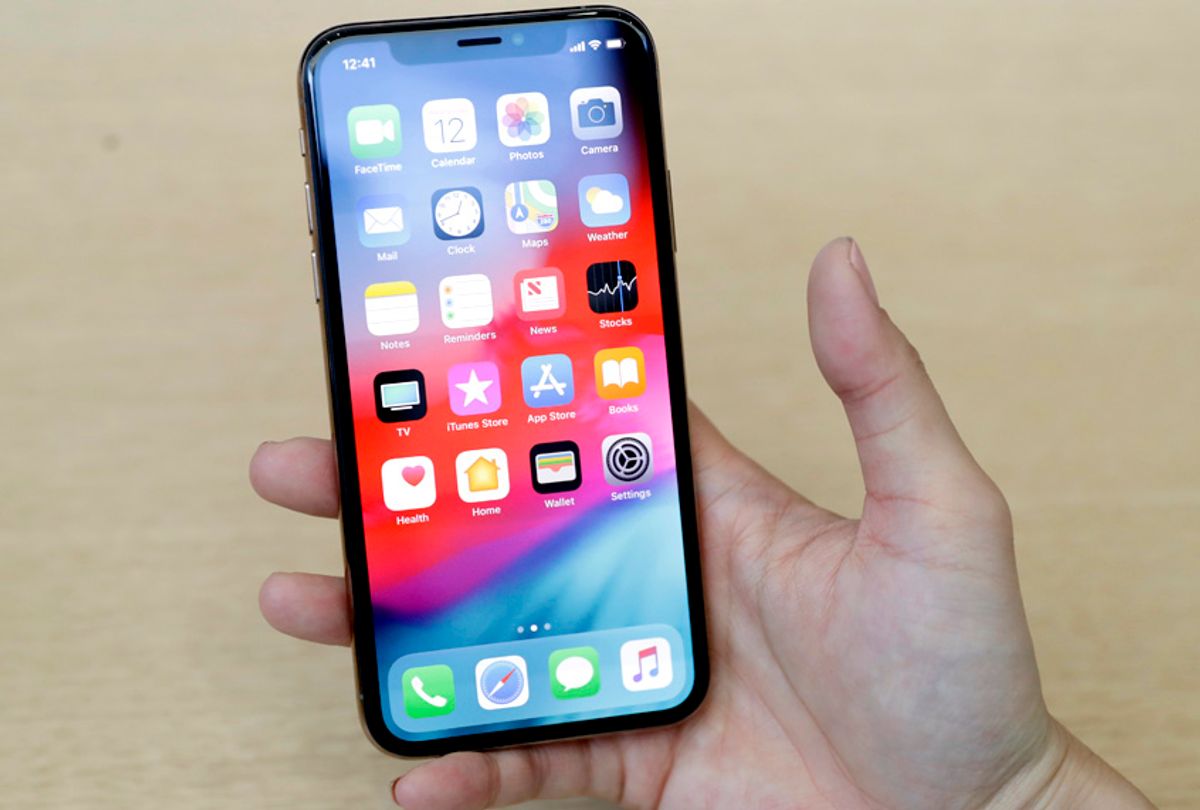Every September for the past decade, Apple has held a special press event in Silicon Valley in which it reveals its latest gadgets to the public. Unlike some tech companies, the notoriously secretive Apple relies on the element of surprise to build hype and function as a marketing tool. Yet at this year's much anticipated event, just like last and the one before, the element of surprise was almost entirely eliminated. A variety of supply chain leaks and premature code releases means that the professionals who follow the Cupertino company's every move — sites like MacRumors and 9to5Mac — had pretty much figured out the minutiae and specs of every new Apple gadget released, right down to the screen size and color.
For a company obsessed with leaks and secrecy, Apple is pretty bad at keeping a secret. Why?
But first, about what happened on September 12: At Apple’s “Gather Round” event held yesterday at the Steve Jobs Theater on the Apple Park campus in Cupertino, California, the tech behemoth revealed the next generation of iPhones and Apple Watch lineup. The three new iPhones included the high-end flagship iPhone XS (pronounced "ten-S") and XS Max in 5.8- and 6.5-inch screen sizes, and a lower-priced iPhone XR featuring slightly less impressive specs. The newly unveiled Apple Watch included a bigger display screen, an improved S4 chip, and support for electrocardiogram (ECG) readings.
While the announcements were thrilling to many Apple fans and consumers, there were very few surprises this year to those who follow tech news. Rather, the event merely confirmed what a year's worth of intermittent leaks had suggested. Even the names and colors of the new iPhones were known prior to launch: a last-minute leak this week revealed the iPhone XS, XS Max, and XR names and the new Apple Watch sizes. The alleged error was first spotted by a tech blog, and occurred when Apple updated its product sitemap file which stated the names. Two weeks prior, 9to5Mac reported that the Apple Watch would have a bigger display screen, another leak that proved true.
Some companies have been known to perpetuate leaks for the sake of publicity. Yet Apple has had a long-fractious relationship with leakers in and outside of the company. In 2010, Gizmodo reported on an internal security force at Apple known as the Worldwide Loyalty Team (noting that some internally called them the "Apple Gestapo") who were tasked with punishing and uncovering leakers.
In April of this year, Mark Gurman at Bloomberg reported on a sternly-worded internal memo, which was posted to an internal Apple message board. The memo read:
Investments by Apple have had an enormous impact on the company’s ability to identify and catch leakers. Just before last September’s special event, an employee leaked a link to the gold master of iOS 11 to the press, again believing he wouldn’t be caught. The unreleased OS detailed soon-to-be-announced software and hardware including iPhone X. Within days, the leaker was identified through an internal investigation and fired. Global Security’s digital forensics also helped catch several employees who were feeding confidential details about new products including iPhone X, iPad Pro and AirPods to a blogger at 9to5Mac.
Leakers do not simply lose their jobs at Apple. In some cases, they face jail time and massive fines for network intrusion and theft of trade secrets both classified as federal crimes. In 2017, Apple caught 29 leakers. 12 of those were arrested.
The Outline reported on a separate internal briefing that provided more insight into the company’s extreme efforts to keep confidential information from leaking to the public. The alleged briefing, led by Director of Global Security David Rice, Director of Worldwide Investigations Lee Freedman, and Jenny Hubbert, part of the Global Security communications and training team, was an hour-long presentation about how Apple allegedly employs investigators around the world to keep information from reaching competitors and press.
According to the report on the video:
“When I see a leak in the press, for me, it’s gut-wrenching,” an Apple employee says in the first video. “It really makes me sick to my stomach.” Another employee adds, “When you leak this information, you’re letting all of us down. It’s our company, the reputation of the company, the hard work of the different teams that work on this stuff.”
While some often speculate it is those in Apple’s supply chain who leaks, the video obtained by The Outline told a different story.
“Last year was the first year that Apple [campuses] leaked more than the supply chain,” Rice allegedly told the room, according to The Outline's report. “More stuff came out of Apple [campuses] last year than all of our supply chain combined.”
Apple’s obsession with secrecy has long been ingrained in its company DNA. Yet as Fast Company writer Mark Sullivan theorized, the company’s intense focus on secrecy only perpetuates the problem and places a higher value on company secrets. And given that we knew everything about these iPhones well before the company's official announcement, it is safe to say Apple's obsession with secrecy has proved fruitless.

Shares